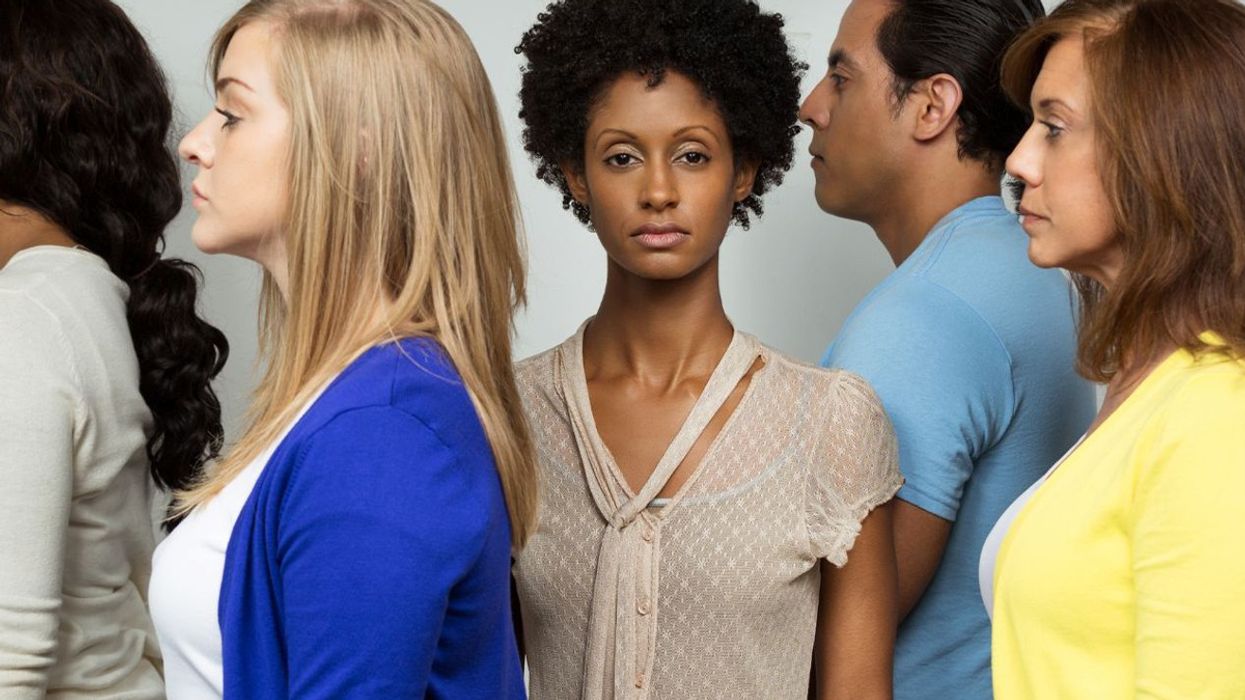When we first traveled to Bangladesh’s swarming capital, Dhaka, to investigate its garment industry, we were looking for the worst. A November fire at the Tazreen Fashions factory—a sub-contractor for big box Western retailers Walmart, Disney and Sears—had killed 112 employees, most of them women. Assigned by the Washington Post to investigate what, if anything, had changed since the tragedy, we were stunned to learn that almost 40 more fires had been documented over the previous three months. These never made headlines.
We visited the charred hulk of an illegal factory on the city’s outskirts that had burned down two weeks before. Eight women died in the blaze, and no one had bothered to clean up the damning remains. On the ground beneath rows of blackened machines we found tags for major European fashion brands; heaps of ready-made blue jeans and winter vests; a white pocket liner improbably singed in the shape of a heart.
In a concrete basement nearby, we met Rajina Akter, a 15-year-old girl who was sewing these pockets six-days-a-week for 18 cents an hour. Knocked unconscious by toxic fumes, she survived thanks to a co-worker who carried her out of the fire. Although Rajina’s eyes were still bloodshot from the blow to her head, without any education, she was resigned to go back to the assembly line.
It turns out that women make up 88 percent of the garment work force in Bangladesh. Despite the low wages, brutal hours and fire hazards in the factories, many are still willing to risk their lives for a job.
We asked ourselves: How would consumers feel if they could see what we were looking at? And would they be moved to make different choices? We were. Rather than simply highlighting Bangladesh’s systemic problems as journalists and moving on, we ultimately decided that it was time to dig in and be a part of the solution. An investigation turned into an investment.
This is how the One More (OM) Project was born—why we’re here now, and why we’re on Indiegogo throughout June and July asking for your support.
While the scale of the problem may seem overwhelming, we found reasons to be hopeful. In the warrens of another inner-city slum, Munni, a young entrepreneur and mother of four, had risen from conditions similar to Rajina’s to run a workshop that produces some of the finest silks in the world. Since linking up with sourceFK, a social business established by Bangladeshi-American entrepreneur Faizun Kamal, Munni has access to better healthcare, financial planning and now employs six full-time weavers. She needs investment to solidify this progress and push forward.
It became clearer to us that with the right support, agency, and a broader sense of responsibility could grow hand in hand. A later trip to a successful women’s cooperative in the north of the country drove this home.
For more than four decades, Saidpur Enterprises has proven that productivity and ethical management amount to a viable business model. Employees earn a daily minimum wage for an 8-hour workday, accrue savings to set aside, and are free to take their work home with them. They enjoy financial planning help and have unanimously chosen to invest their savings in their homes and children, enabling some to pursue a higher education.
The OM Project seeks to connect artisans around the world with mindful consumers. We will do so by fusing journalism with design as the way we source our products, as we believe inter-personal knowledge will foster the trust needed for a new business paradigm in Bangladesh.
To kick things off, we designed a working bag made of locally sourced plant fiber and repurposed sari cloth and Munni’s beautiful silks. Made entirely by hand in dignified conditions, the bag is a symbol of fair and honest work and a commitment to productivity that brings together forty years of experience with a start-up venture that’s looking to grow. It’s also a step toward erasing stigmas now associated with “Made in Bangladesh.”
On June 12 we launched a month-long Indiegogo campaign to raise a minimum of $50,000. This will allow us to return to Bangladesh and build our business in cooperation with the artisans of Saidpur Enterprises and sourceFK. As we grow, we will continue to employ one more woman. We will also make a short film that spotlights their personal journeys, working environment and the unique skill that is woven into every item they produce.
Awareness and targeted investment are needed now more than ever. The April 24 collapse of the Rana Plaza building claimed more than 1100 lives, making it the worst accident in the history of the garment industry.
Some foreign companies have since threatened to pull out of the country altogether. Not only would this ensure that critical improvements are not made, leaving more workers at risk to less scrupulous employers, it would mean fewer jobs for thousands of people whose livelihoods depend on garment making work.
The OM Project is about generating fair employment opportunities because we know that dignified work spurs personal empowerment and a broader of sense of agency. By producing the OM bag and selling it on the open market, we hope to initiate durable change for everyone involved.
This project is part of GOOD's Saturday series Push for Good—our guide to crowdfunding creative progress.
















 Otis knew before they did.
Otis knew before they did.